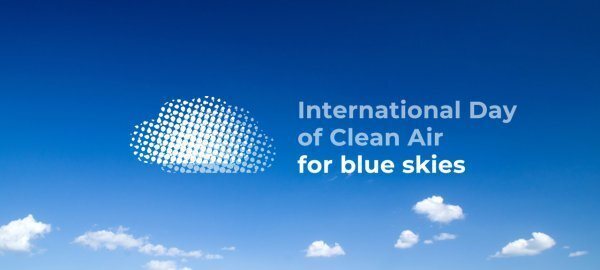
EU adopts new rules to significantly cut packaging waste with re-use targets
The European Union has formally adopted a regulation on packaging and packaging waste. The new ...

The world is marking the first-ever International Day of Clean Air for blue skies on September 7 as the fight against climate change is heating up.
The event is meant to give momentum to global efforts to curb air pollution and its effect.
Adopted by a United Nations (UN) General Assembly Resolution in 2019, the International Day of Clean Air for blue skies – whose observance is facilitated by the UN Environment Program (UNEP) – stresses the importance of and urgent need to raise public awareness at all levels and to promote and facilitate actions to improve air quality. The Republic of Korea led global efforts to create this new International Day of Clean Air for blue skies and will host an event to start celebrations.
In many parts of the world extreme air pollution events have become a seasonal phenomenon, almost as reliable as the monsoon or autumn foliage. In early November, New Delhi and other cities in northern India experienced levels of air pollution that cancelled flights and kept people masked and indoors. In Ulaanbaatar, Mongolia, and the Thai capital, Bangkok, these events occur in January and February.
In California and Australia, summer wildfires are being turbocharged by climate change, destroying habitat, and covering vast areas in a choking haze.
These are examples of the extreme impacts of a crisis that affects us all – air pollution affects human, animal and planetary health, with an estimated 7 million people dying prematurely from diseases caused by air pollution.
Air pollution is the greatest environmental risk to human health and one of the main avoidable causes of death and disease globally. Each year, many millions more living with these diseases suffer a substantial amount of disability.
“Around the world, nine out of every ten people breathe unclean air,” UN Secretary-General António Guterres said in his message for the Day. “The extent of this challenge requires decisive action on the part of governments, businesses and communities to end reliance on fossil fuels in favor of clean affordable renewable energy. On the first-ever International Day of Clean Air for blue skies, let us commit to no new coal for cleaner, greener economies and better health for all.”
Air pollution not only threatens the health of people but also has negative impacts on plants and ecosystems. Ozone air pollution alone is responsible for 52 million tons of global crop losses annually. Air pollution also drives the climate crisis with many greenhouse gases and air pollutants coming from the same sources, meaning air pollution is not only bad human for health and quality of life today, but also makes the future less safe for coming generations.
Air pollution does not respect international borders and countries must work together to prioritize air pollution reduction measures and invest in clean air solutions; research shows that renewable energy is more cost-effective than ever.
The International Day of Clean Air for blue skies calls for increased international cooperation at the global, regional and sub-regional levels. It provides a provide a platform for strengthening global solidarity as well as political momentum for action against air pollution and climate change, including actions like the increased collection of air quality data, carrying out joint research, developing new technologies and sharing best practices.
“In the face of global challenges posed by air pollution, climate change, social and economic inequalities, and the ongoing COVID-19 pandemic, we have a chance to build back better,” says Dr Tedros Adhanom Ghebreyesus, Director-General of WHO. “Many governments have already taken steps to align health, air pollution and climate policies. Now is the time to rethink how we organize our societies, our cities, our transportation, and how we cook and heat our homes – for health’s sake.”
“Air pollution is a huge environmental risk to human health. It has a disproportionate impact on the poor. The economic costs are mounting – whether through healthcare bills, lost productivity, reduced crop yields or the eroded competitiveness of cities,” said Inger Andersen, UNEP Executive Director.
“COVID-19 lockdowns have shown that a cleaner sky is possible. That people are willing to listen to science. That we can act quickly to protect human health. We must take similar urgent action to lift the smog of air pollution. If we do, we can save millions of lives and billions of dollars each year.”
The European Union has formally adopted a regulation on packaging and packaging waste. The new ...
Inaugurating the Abydos Solar Power Plant in the Upper Egypt governorate of Aswan represents a ...
Businesses that fail to adapt to climate risks like extreme heat could lose up to ...


اترك تعليقا